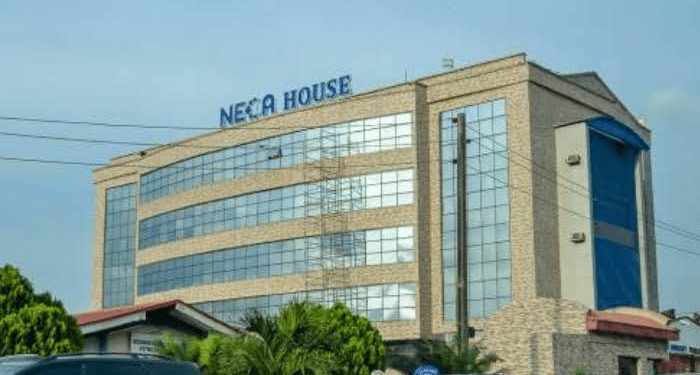The Nigeria Employers’ Consultative Association (NECA) has voiced strong concerns about Nigeria’s worsening business climate, stating that rising inflation, exchange rate volatility, and high interest rates continue to threaten business survival—especially for micro, small, and medium enterprises (MSMEs) despite modest economic growth in 2024.
Speaking at NECA’s 68th Annual General Meeting (AGM) in Lagos, the association’s president, Ifeanyi Okoye, attributed the country’s current challenges to a mix of global disruptions and domestic policy shifts. He noted that while Nigeria’s GDP grew by 3.4 percent in 2024, an improvement from 2.23 percent the previous year, the gains have been overshadowed by inflation climbing to 22.9 percent, a weakened naira at N1,538 per dollar, and lending rates reaching 30.8 percent.
He warned that nearly half of Nigeria’s population now lives in poverty, with figures rising from 38.9 percent in 2023 to 47 percent in 2024, largely due to structural changes triggered by the removal of fuel subsidies, foreign exchange reforms, and a revised minimum wage policy.
Okoye stated that businesses, instead of pursuing long-term growth, have been forced into survival mode under harsh macroeconomic conditions. However, he commended the government for some reform efforts, particularly the Nigerian Tax Act 2024, which reduced Company Income Tax to 25 percent, eliminated over 50 minor taxes, and offered relief for smaller enterprises. He also praised the Presidential Enabling Business Environment Council (PEBEC) and the introduction of the “Renewed Hope Nigeria First” policy aimed at promoting local content in public procurement.
Despite these efforts, NECA expressed concern over persistent challenges such as smuggling, product counterfeiting, and regulatory overreach. Okoye specifically criticised the frequent and disruptive summons of private sector executives by National Assembly Committees, calling it a threat to business efficiency and a violation of the Ease of Doing Business framework.
He urged the National Assembly to enact a consolidated Anti-Counterfeiting Law to protect genuine Nigerian products from fake alternatives flooding the market.
Also speaking at the event, the Minister of Labour and Employment, represented by Mienye Badejo, called on employers to prioritise employee skill development, workplace safety, and social dialogue to strengthen industrial relations and foster national stability.
On the evolving role of technology in the workplace, Nigeria Labour Congress (NLC) President Joe Ajaero emphasised the importance of protecting jobs amid increasing reliance on artificial intelligence and automation. He cautioned that innovation must not come at the cost of workers’ rights or human dignity.
“Technology must serve the cause of Decent Work and social justice, not subvert or supplant them,” Ajaero said. He called for stronger workplace governance frameworks to ensure that both employers and employees benefit from the technological transformation while preserving a balance between productivity and human well-being.
The AGM, themed “The workplace: Influence of technology and AI in business sustainability,” brought together stakeholders from government, labour, and the private sector to reflect on how to drive inclusive, resilient growth while adapting to rapid changes in the business and labour landscape.










